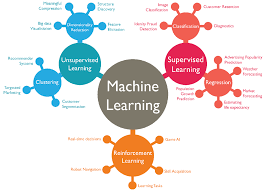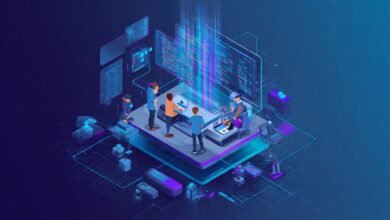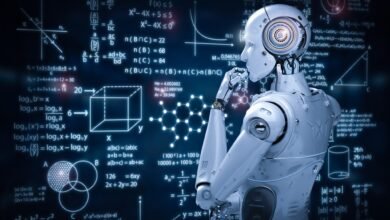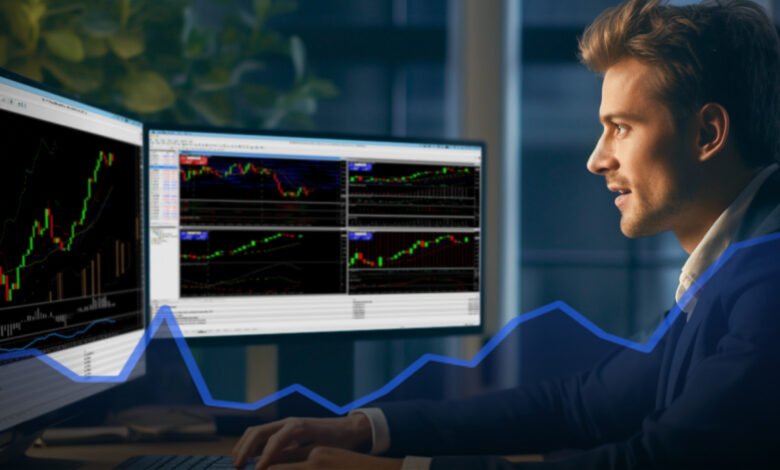
The convergence of artificial intelligence and business innovation has never been more evident than at today’s AI trade shows. These dynamic events serve as epicenters where cutting-edge technology meets practical business applications, creating unprecedented opportunities for growth, partnership, and technological advancement. As artificial intelligence continues to reshape industries worldwide, trade shows have evolved into essential platforms for companies seeking to understand, adopt, and leverage AI solutions.
AI trade shows represent more than traditional exhibitions; they are transformative experiences where business innovation takes center stage. These events bring together thought leaders, technology developers, investors, and enterprises eager to explore the limitless possibilities of artificial intelligence. From startups showcasing revolutionary machine learning algorithms to established corporations demonstrating enterprise-scale AI implementations, these gatherings foster an environment where technology innovation thrives.
The significance of AI conferences extends beyond mere product demonstrations. They serve as catalysts for industry transformation, offering attendees insights into emerging trends, regulatory changes, and market dynamics that will shape the future of business. Whether you’re a C-level executive seeking competitive advantages, a developer exploring new AI frameworks, or an entrepreneur looking for investment opportunities, AI trade shows provide unparalleled access to the resources and connections necessary for success.
In an era where digital transformation is no longer optional but essential for survival, these events bridge the gap between theoretical AI capabilities and real-world business applications. They offer a unique vantage point to witness firsthand how artificial intelligence is revolutionizing everything from healthcare and finance to manufacturing and retail. The networking opportunities, educational sessions, and hands-on demonstrations available at AI trade shows make them indispensable for anyone serious about leveraging technology for business growth.
As we explore the multifaceted world of AI trade shows, we’ll uncover how these events are reshaping the landscape of business innovation and why they’ve become critical touchpoints for organizations navigating the complex world of artificial intelligence adoption and implementation.
The Evolution of AI Trade Shows
The landscape of AI trade shows has undergone a remarkable transformation over the past decade. What began as niche technical conferences focused primarily on academic research has evolved into comprehensive business platforms where artificial intelligence meets commercial viability. Early AI conferences were dominated by researchers presenting theoretical frameworks and experimental results to small, specialized audiences. Today’s AI trade shows attract thousands of participants from diverse industries, reflecting the mainstream adoption of artificial intelligence across sectors.
This evolution mirrors the broader digital transformation occurring across industries. As businesses recognized the competitive advantages offered by AI technologies, the demand for practical, implementable solutions grew exponentially. Trade shows responded by shifting focus from purely academic presentations to business-oriented demonstrations, case studies, and solution showcases. The transformation has been so significant that major technology companies now consider AI trade shows essential components of their go-to-market strategies.
The democratization of artificial intelligence has played a crucial role in this evolution. Cloud computing platforms, open-source frameworks, and user-friendly AI tools have made advanced technologies accessible to businesses of all sizes. AI trade shows now feature everything from enterprise-grade machine learning platforms to simple automation tools designed for small businesses. This inclusivity has expanded the audience base and increased the commercial value of these events.
Technology innovation cycles have also accelerated, making AI trade shows more frequent and specialized. Where once annual conferences sufficed, the rapid pace of AI development now requires quarterly or even monthly gatherings to keep pace with new developments. Regional AI conferences have emerged to serve local markets, while global events continue to set industry standards and trends.
Key Benefits of Attending AI Trade Shows
AI trade shows offer unparalleled opportunities for business innovation and professional development. The networking potential alone justifies attendance for most organizations. These events create concentrated environments where decision-makers, technology providers, and industry experts converge, facilitating connections that would be impossible to establish through traditional channels. The quality of networking at AI conferences often surpasses other business events due to the shared focus on cutting-edge technology and innovation.
Knowledge acquisition represents another significant benefit. AI trade shows provide access to the latest research findings, market insights, and technological breakthroughs before they become mainstream. Attendees gain competitive intelligence through keynote presentations, technical sessions, and informal conversations with industry leaders. This early access to information can be crucial for strategic planning and maintaining competitive advantages in rapidly evolving markets.
The hands-on experience available at AI trade shows is invaluable for technical teams. Live demonstrations, interactive workshops, and prototype testing allow participants to evaluate solutions in controlled environments. This practical exposure helps organizations make informed decisions about AI technologies without the risks and costs associated with full-scale implementations. Many attendees report that these experiences significantly accelerate their decision-making processes.
Digital transformation initiatives often benefit from the validation and inspiration found at AI conferences. Seeing similar organizations successfully implement artificial intelligence solutions provides confidence and practical roadmaps for transformation efforts. Case studies presented at these events offer blueprint approaches that can be adapted to specific organizational needs, reducing implementation risks and accelerating time-to-value.
Market intelligence gathered at AI trade shows extends beyond technology trends to include regulatory updates, funding opportunities, and partnership possibilities. This comprehensive information ecosystem supports strategic decision-making across all levels of organization, from tactical technology selections to long-term business strategy development.
Major AI Trade Shows and Conferences Worldwide
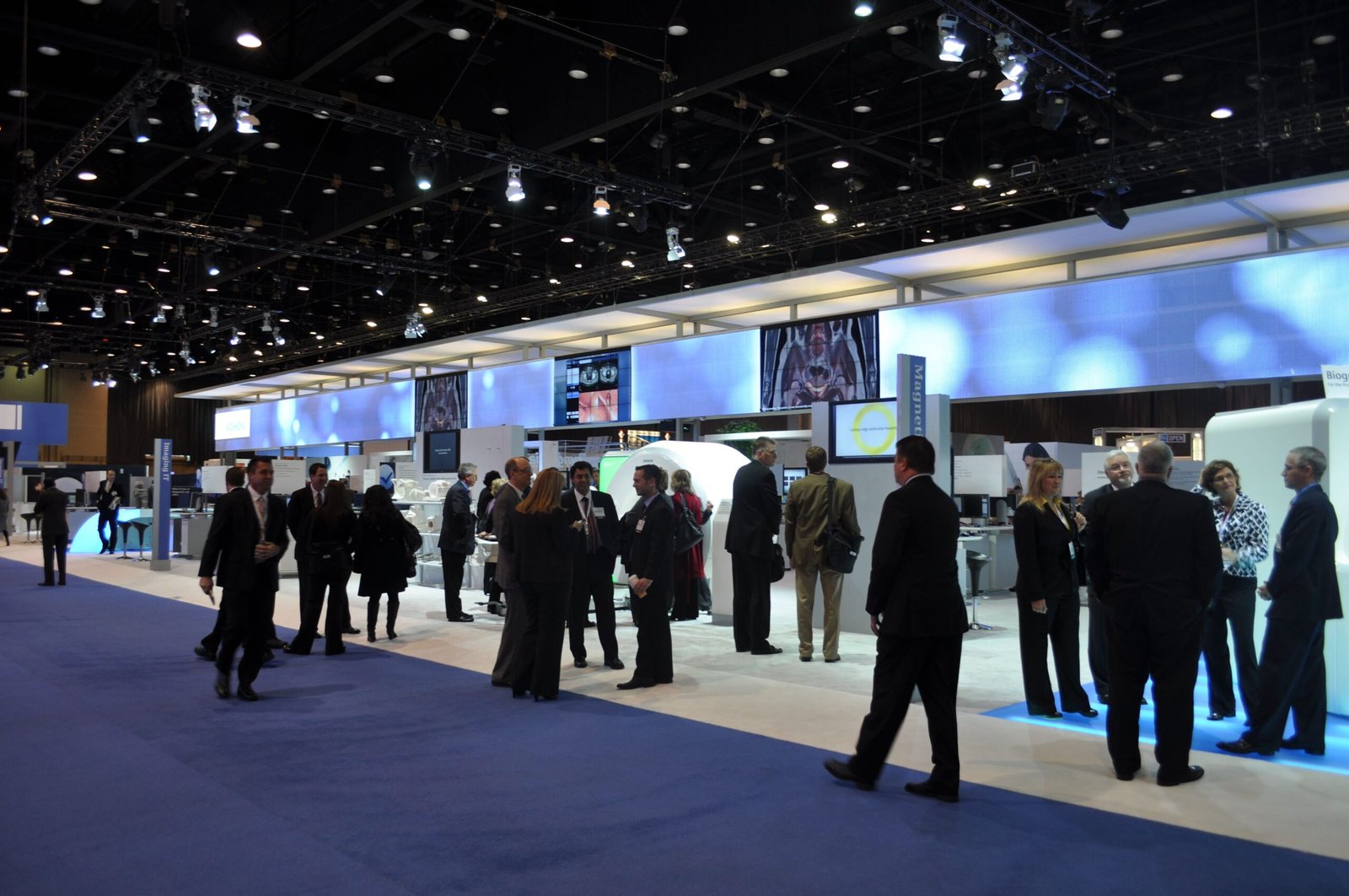
The global AI trade show circuit encompasses numerous premier events that attract international audiences and showcase the latest in artificial intelligence innovation. NVIDIA GTC stands as one of the most influential AI conferences, bringing together developers, researchers, and business leaders to explore advances in GPU computing, deep learning, and AI applications. The event consistently features groundbreaking announcements and serves as a barometer for industry trends.
GITEX GLOBAL represents the intersection of AI trade shows and broader technology exhibitions. This massive event in Dubai attracts over 100,000 visitors annually and features dedicated AI zones alongside other technology sectors. The international nature of GITEX makes it particularly valuable for organizations seeking global partnerships and market expansion opportunities in the artificial intelligence space.
The AI & Big Data Expo series runs across multiple continents, offering regional focus while maintaining global perspectives on technology innovation. These events combine exhibition floors with conference programming, providing comprehensive platforms for learning, networking, and business development. The expo format allows for both broad industry overviews and deep technical dives into specific AI applications.
World AI Show has established itself as a premium networking platform for AI conferences, attracting C-level executives, investors, and technology leaders. The event’s focus on high-level strategic discussions makes it particularly valuable for organizations in the planning stages of digital transformation initiatives. The curated attendee list ensures meaningful connections and productive business discussions.
Regional events like the AI Conference in San Francisco and various TechConnect gatherings provide more intimate settings for business innovation discussions. These smaller-scale AI trade shows often offer better networking opportunities and more personalized interactions with vendors and speakers, making them ideal for organizations seeking specific solutions or partnerships.
Networking Opportunities and Business Connections
The networking dimension of AI trade shows extends far beyond casual business card exchanges. These events create structured environments where meaningful professional relationships develop organically. The shared interest in artificial intelligence and technology innovation provides natural conversation starters and common ground for relationship building. Many attendees report that connections made at AI conferences lead to long-term partnerships, joint ventures, and collaborative projects.
Executive networking at AI trade shows occurs at multiple levels, from scheduled one-on-one meetings to informal conversations during coffee breaks. VIP programs and exclusive networking events allow senior decision-makers to connect without the distractions of larger crowds. These intimate settings often result in high-value business discussions and strategic partnership formations that drive significant business innovation initiatives.
The international nature of major AI conferences provides unique opportunities for global business development. Organizations can connect with potential partners, distributors, and customers from different geographic markets in concentrated timeframes. This geographical diversity is particularly valuable for companies planning international expansion or seeking global perspectives on AI technologies and market trends.
Investor networking represents another crucial aspect of AI trade shows. Venture capitalists, private equity firms, and corporate venture arms actively participate in these events, seeking promising technologies and business models. For startups and growing companies, AI conferences provide efficient access to funding sources and strategic investors who understand the artificial intelligence landscape.
Technical networking among developers, data scientists, and AI researchers creates knowledge-sharing communities that extend beyond event dates. These professional connections often lead to collaborative research projects, talent acquisition opportunities, and technical problem-solving partnerships that accelerate digital transformation initiatives across participating organizations.
Technology Demonstrations and Product Launches
AI trade shows serve as premier venues for technology demonstrations that showcase the practical applications of artificial intelligence across industries. Unlike theoretical presentations, these live demonstrations provide tangible proof of concept for AI solutions, allowing attendees to witness real-world performance and capabilities. The interactive nature of these demonstrations enables detailed questioning and exploration of technical specifications, use cases, and implementation requirements.
Product launches at AI conferences generate significant industry attention and media coverage. Companies strategically time their announcements to coincide with major trade shows to maximize visibility and impact. These launches often set industry trends and influence competitive responses, making AI trade shows critical events for market intelligence gathering and competitive analysis.
The demonstration format allows for comparative evaluation of competing solutions within compressed timeframes. Attendees can experience multiple AI technologies addressing similar business challenges, facilitating informed decision-making processes. This side-by-side comparison opportunity is particularly valuable for organizations evaluating digital transformation technologies and seeking optimal solutions for specific use cases.
Prototype showcases at AI trade shows provide glimpses into future technology directions and emerging capabilities. These early-stage demonstrations help attendees understand technology roadmaps and plan for upcoming innovations. Forward-thinking organizations use these insights to inform strategic planning and ensure their business innovation initiatives align with technological evolution.
Interactive workshops and hands-on labs complement formal demonstrations by providing deeper technical engagement. These sessions allow participants to configure solutions, test scenarios, and explore integration possibilities. The practical experience gained through these activities significantly reduces implementation risks and accelerates adoption timelines for artificial intelligence solutions.
Industry Trends and Future Insights
AI trade shows serve as crystal balls for industry trends, offering attendees first-hand exposure to emerging technologies and market directions. The concentration of industry leaders, researchers, and innovators creates an environment where future trends become visible before they reach mainstream awareness. Keynote presentations and panel discussions at AI conferences often reveal strategic industry movements and technological breakthroughs that will shape business landscapes.
The trend identification capability of AI trade shows extends beyond pure technology to encompass business models, regulatory changes, and market dynamics. Expert speakers share insights about evolving customer expectations, competitive threats, and opportunity areas that inform strategic planning processes. Organizations use these insights to position themselves advantageously for future market conditions and digital transformation requirements.
Emerging application areas for artificial intelligence frequently debut at trade shows before becoming widely adopted. From novel uses of machine learning in traditional industries to breakthrough applications in emerging sectors, these events showcase innovative implementations that inspire new business models and revenue streams. The cross-pollination of ideas across industries often leads to unexpected business innovation opportunities.
Technology convergence trends become apparent through the integration demonstrations and partnership announcements common at AI conferences. The intersection of artificial intelligence with other technologies like blockchain, IoT, and quantum computing creates new possibilities for technology innovation. Understanding these convergence patterns helps organizations plan comprehensive technology strategies rather than isolated implementations.
Investment trend analysis emerges from venture capital participation and startup showcases at AI trade shows. Funding patterns, valuation trends, and investor preferences become visible through pitch competitions and investment forums. This intelligence supports both fundraising efforts and competitive analysis for organizations operating in the artificial intelligence ecosystem.
Learning and Educational Opportunities
The educational component of AI trade shows provides structured learning opportunities that complement networking and demonstration activities. Expert-led workshops offer deep dives into specific AI technologies, implementation methodologies, and best practices. These sessions bridge the gap between theoretical knowledge and practical application, providing attendees with actionable insights for their digital transformation initiatives.
Certification programs and training courses available at AI conferences help professionals develop credentials and skills necessary for artificial intelligence roles. Many organizations send technical teams to these events specifically for skill development and knowledge enhancement. The concentrated learning environment allows for intensive skill building that would require months in traditional settings.
Case study presentations at AI trade shows provide real-world implementation examples that illustrate both successes and challenges in artificial intelligence deployment. These honest assessments help attendees avoid common pitfalls and adopt proven strategies for their own business innovation projects. The interactive nature of these presentations allows for detailed questioning and clarification of implementation details.
Research presentations at AI conferences expose attendees to cutting-edge developments in artificial intelligence research. While often theoretical, these presentations help technical professionals understand future capabilities and plan for emerging technologies. The research preview helps organizations anticipate technological evolution and prepare for next-generation AI technologies.
Panel discussions featuring industry experts provide diverse perspectives on complex topics like AI ethics, regulatory compliance, and industry-specific applications. These discussions help attendees understand multiple viewpoints and develop balanced approaches to artificial intelligence implementation. The expert insights support informed decision-making and risk management strategies.
Maximizing ROI from AI Trade Show Participation
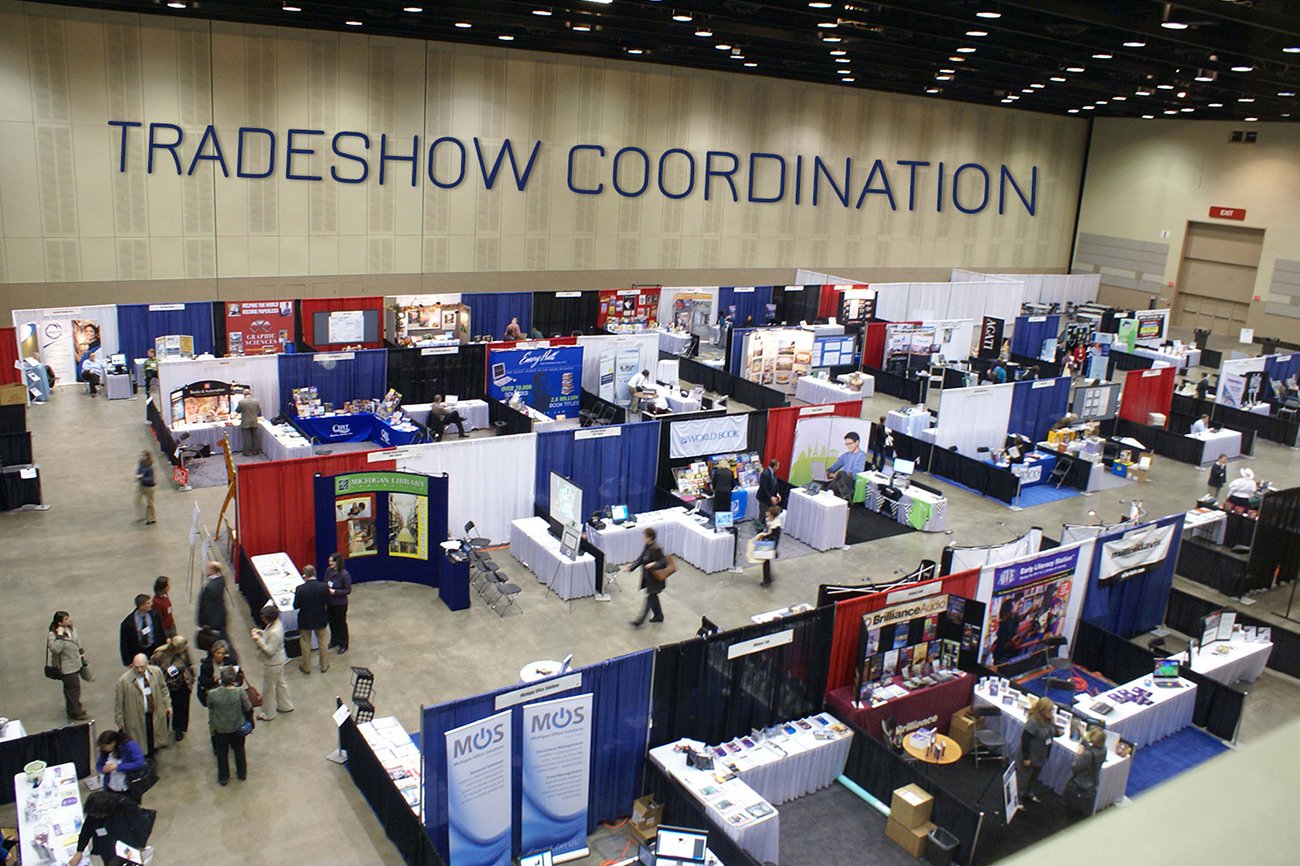
Strategic planning significantly impacts the return on investment from AI trade show participation. Organizations should establish clear objectives before attending, whether focused on lead generation, market research, partnership development, or technology evaluation. Well-defined goals enable targeted activity planning and measurable outcome assessment, ensuring maximum value extraction from AI conferences.
Pre-event preparation involving research and networking setup pays substantial dividends during actual attendance. Reviewing attendee lists, scheduling meetings, and identifying key presentations create efficient itineraries that maximize valuable interactions. Many successful trade show participants report that pre-event planning accounts for 50% of their overall success at artificial intelligence events.
Team composition and role assignments optimize coverage and information gathering at AI trade shows. Different team members can focus on technical evaluation, business development, competitive intelligence, or market research, ensuring comprehensive event coverage. Coordinated team efforts prevent information gaps and ensure all relevant aspects of business innovation opportunities receive adequate attention.
Follow-up activities after AI conferences determine long-term value realization from event participation. Prompt contact with new connections, proposal development, and implementation planning convert event interactions into tangible business results. Organizations with structured follow-up processes report significantly higher conversion rates from trade show leads and partnerships.
Measurement and analysis of AI trade show outcomes inform future participation strategies and investment decisions. Tracking metrics like leads generated, partnerships formed, and knowledge gained provides an objective assessment of event value. This data-driven approach enables continuous improvement in artificial intelligence event participation and resource allocation optimization.
The Future of AI Trade Shows
The future landscape of AI trade shows promises continued evolution driven by technological advancement and changing business needs. Virtual and hybrid event formats are becoming permanent fixtures, expanding accessibility and reducing participation costs while maintaining the collaborative spirit of traditional AI conferences. These format innovations allow broader global participation and more flexible engagement models for artificial intelligence professionals.
Specialization trends are creating niche AI trade shows focused on specific industries, applications, or technologies. Healthcare AI events, financial services artificial intelligence conferences, and manufacturing automation trade shows provide targeted content and networking opportunities for sector-specific audiences. This specialization enhances relevance and value for participants seeking industry-specific business innovation solutions.
Interactive technologies are transforming the trade show experience itself, with augmented reality demonstrations, virtual reality training sessions, and AI-powered matchmaking systems becoming standard features. These technologies enhance engagement and learning while providing more personalized experiences for attendees interested in technology innovation and digital transformation opportunities.
Sustainability considerations are influencing AI conference planning and execution, with carbon footprint reduction, digital materials, and remote participation options becoming priorities. Environmental consciousness among artificial intelligence professionals drives demand for responsible event management that aligns with broader corporate sustainability goals and social responsibility initiatives.
The integration of AI technologies into trade show operations themselves creates meta-innovation opportunities where artificial intelligence enhances the experience of exploring artificial intelligence solutions. Smart scheduling, predictive networking, and personalized content recommendations improve attendee experiences while demonstrating practical AI technologies applications in event management contexts.
More Read: How to Find and Invest in the Most Promising AI Startups
Conclusion
AI trade shows have emerged as indispensable platforms where business innovation intersects with cutting-edge artificial intelligence technologies, creating transformative opportunities for organizations across all industries. These dynamic events serve multiple critical functions: they facilitate meaningful networking between decision-makers and technology providers, showcase practical applications of AI technologies through live demonstrations and case studies, provide early access to market trends and technological breakthroughs, and offer structured learning environments for professional development.
The evolution from academic-focused conferences to comprehensive business platforms reflects the mainstream adoption of artificial intelligence and the growing recognition of AI trade shows as essential components of digital transformation strategies. As the industry continues to mature, these events will undoubtedly play an increasingly vital role in shaping the future of business innovation, making them critical investments for organizations seeking to leverage the power of artificial intelligence for competitive advantage and sustainable growth in an increasingly technology-driven marketplace.



